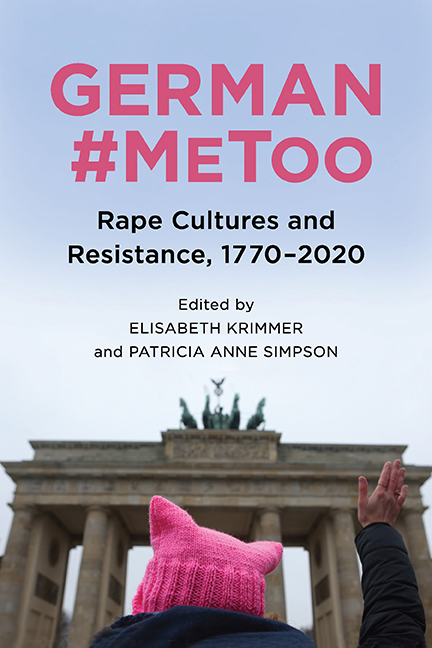16 - Is a Prostitute Rapeable? Teresa Ruiz Rosas’s NovelNada que declarar in Dialogue with #MeToo
Published online by Cambridge University Press: 08 October 2022
Summary
Nothing is more revoltingthan to fuck without being horny.
… without passion, desire,attraction, or at least curiosity.
—Teresa Ruiz Rosas, Nada que declarar, 118THE #METOO MOVEMENT provides a powerful platform tocollect and publicize the testimony of victims ofsexual harassment and violence. It has provided aplatform for formerly invisible victims of sexualassault, empowered women and young girls, andaddressed persistent cultural blind spots aboutgendered violence. To date, #MeToo has supportedwhite middle-class women, actresses, women of color,incarcerated women, female domestic workers, andfemale veterans. Yet #MeToo excludes accounts of sexworkers, thereby implicitly discrediting theirexperiences of abuse and perpetuating the stillwidespread societal belief that prostitutes cannotbe sexually harassed or raped since they are womenwho are always consenting. The historicalpersuasiveness of that view is reflected injurisdiction skewed against prostitutes, as legalscholar Barbara Sullivan documented. Some argue thatnot only the exclusion of professional sex workersfrom the debate but also the #MeToo movement'sexplicit support of Survivor's Agenda, anorganization that lobbies for the legalization ofsex work, is alarming and antithetical to theirproclaimed goal of strengthening women's rights. Thefluid boundaries between voluntary and coerced sexwork and life as a prostitute are subjects of TeresaRuiz Rosas's 2013 novel, Nadaque declarer, which raises questions thatsubstantially enrich the #MeToo discourse.
Rosas's novel addresses the issue of legalized andallegedly well-regulated prostitution in Germanythrough the story of the eighteen-year-oldprotagonist, Diana Postigo, who was brought fromPeru to Germany and forced into prostitution. Whilethe story is fictional, Ruiz Rosas's work is wellresearched and reflects frequently employedrecruitment methods and working conditions of someof those sex workers who offer their services inbrothels. In the novel, the author draws on herintimate familiarity with her country of origin,Peru, and her knowledge of Germany, her country ofresidence since the early 1990s. In both places,Ruiz Rosas has been involved in raising awarenessabout gendered violence, human trafficking, andexploitation in the prostitution industry.
- Type
- Chapter
- Information
- German #MeTooRape Cultures and Resistance, 1770-2020, pp. 362 - 380Publisher: Boydell & BrewerPrint publication year: 2022



